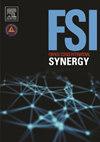Legislation for forensic investigative genetic genealogy in Sweden
Q1 Social Sciences
引用次数: 0
Abstract
Sweden was in 2019 the first country outside of North America to use forensic investigative genetic genealogy (FIGG) in solving a crime. However, further use of the method was inhibited in 2021 by the Swedish Authority for Privacy Protection Authority (IMY), following a mandatory prior consultation process. This decision was due to a considered lack of legislative support as well as issues regarding the transfer of sensitive personal data to a third country. Subsequently, method implementation was put on hold awaiting necessary legal review and amendments. In July 2024, the Swedish Justice Department presented a legal bill on the Police Authority use of FIGG, with only slight changes in relation to the considerations presented by a previous national committee on law enforcement use of biometrics. The legislation distinctly passed parliament vote February 2025 and it will gain force on July 1, 2025. Due to its sensitive nature the use of FIGG will be limited to the most severe offences; murder and aggravated rape, as a last resort and only following a prerequisite of “absolute necessity”. This paper describes the coming legislation on the use of FIGG in Sweden, discussing some parts of the constitutional comments and limitations seen, and describing implementation of FIGG within Swedish law enforcement.
瑞典法医调查基因谱系的立法
2019年,瑞典成为北美以外第一个使用法医调查基因谱系(FIGG)破案的国家。然而,在经过强制性的事先咨询程序后,瑞典隐私保护局(IMY)于2021年禁止进一步使用该方法。这一决定是由于缺乏立法支持,以及有关将敏感个人数据转移到第三国的问题。随后,方法的执行被搁置,等待必要的法律审查和修正。2024年7月,瑞典司法部提出了一项关于警察当局使用FIGG的法律法案,与之前国家委员会关于执法使用生物识别技术的考虑因素相比,只有轻微的变化。该法案于2025年2月通过了议会投票,并将于2025年7月1日生效。由于其敏感性,FIGG的使用将仅限于最严重的罪行;谋杀和加重强奸,作为最后手段,只有在“绝对必要”的前提下。本文描述了瑞典关于使用FIGG的立法,讨论了宪法评论和限制的一些部分,并描述了瑞典执法中FIGG的实施情况。
本文章由计算机程序翻译,如有差异,请以英文原文为准。
求助全文
约1分钟内获得全文
求助全文
来源期刊

Forensic Science International: Synergy
Social Sciences-Law
CiteScore
4.90
自引率
0.00%
发文量
75
审稿时长
90 days
 求助内容:
求助内容: 应助结果提醒方式:
应助结果提醒方式:


